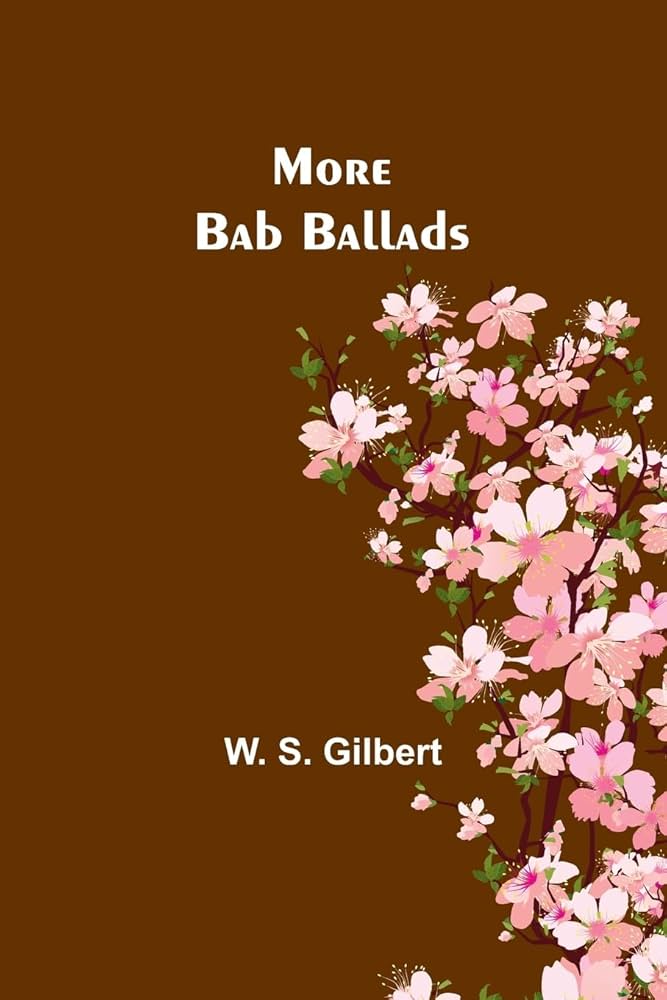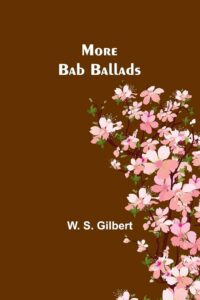Ballad: My Dream
byMy Dream tells of a fantastical place where logic is reversed, and the world functions in perfect contradiction to our own. The narrator finds themselves in Topsy-Turveydom, a land where everything familiar has been flipped on its head. In this strange land, evil is applauded while virtue is frowned upon, and dishonesty earns reward rather than punishment. The people celebrate foolishness and look upon intelligence with suspicion. Rules, expectations, and traditions seem deliberately confused, yet the locals accept this chaos as their natural order. What feels absurd to us is the very foundation of their society. Through this inversion, the dream reveals a sharp critique of our world’s sometimes illogical reverence for the wrong things.
Children in this upside-down realm are born with immense wisdom, possessing advanced understanding of science, language, and philosophy. Yet as they age, they are pressured to unlearn these insights to fit in with the adults who prize ignorance. Maturity is marked by forgetting, not learning, which is the opposite of what we celebrate in the real world. The more knowledge a person loses, the more they are respected, showing a society where wisdom is seen as a burden. The narrator watches in confusion as babies lecture scholars, only to later grow up and forget everything that once made them exceptional. The system rewards those who conform to unknowing, hinting at the dangers of blindly following societal norms without questioning their value. This dream becomes a metaphor for how brilliance can be dulled by the pressure to fit in.
Even the legal system operates in contradiction. Judges commit crimes to gain the experience needed to sentence criminals fairly, while virtuous acts—those we would praise—are punished as signs of rebellion. Policemen are tasked not with preserving order, but with ensuring that justice is denied to the innocent and gifted. Morality is not just bent but completely reversed, and those who act with integrity are seen as threats to social harmony. The absurdity of it all forces the dreamer to question the foundations of justice in their waking world. Are we too quick to punish those who stand out or challenge the rules? Could our own systems sometimes reward appearances over truth? These questions simmer beneath the humor, making the satire sting with relevance.
The narrator also encounters gender roles that defy convention. Women hold the positions of traditional male authority, and men adopt the roles typically assigned to women. Yet this swap is not treated as remarkable within the dream—it simply is. Children mock their parents for holding onto outdated ideas, only to later repeat the same mistakes as adults. The dream presents identity as fluid, not fixed, and questions the rigidity with which societies define gender, age, and wisdom. By blending surreal imagery with sharp insight, the poem pushes readers to reflect on what makes these social roles feel natural or necessary. Perhaps, the poet suggests, they’re more constructed than we’d like to admit.
Waking from the dream, the narrator carries a lingering discomfort. Though the dream world was bizarre, it mirrors many of the contradictions we live with each day—celebrating status over substance, silencing innovation, and clinging to norms that serve no moral purpose. The poem invites readers to reexamine their assumptions, to ask whether what we label as right or wrong, wise or foolish, might just be habits passed down without reason. It challenges us to stay awake even while we’re awake—to avoid slipping into mental sleep where questioning ends and conformity begins. The dream, while funny and surreal, becomes a call for conscious living.
What makes My Dream so compelling is its balance of imagination and social commentary. By creating a world that operates in reverse, the poet doesn’t just entertain, but dissects our reality through contrast. The satire works precisely because it exaggerates our real tendencies—the worship of ignorance in politics, the mistrust of expertise, and the suppression of authentic identity in favor of easy labels. These distortions draw out truths we often overlook. A dream, after all, can say what waking words sometimes cannot. And in this dream, the message is clear: questioning is necessary, and even the most accepted norms should not go unchallenged.
For the reader, this poem offers more than just amusement—it offers perspective. In every laugh lies a lesson, and in every reversal, a reflection of ourselves. Through this clever tale, we’re reminded to celebrate knowledge, to value individual worth, and to resist the temptation of easy, unquestioned conformity. The dream may be over, but its insight lingers, leaving us more awake than before.


